
Major Events & Festivals in Dhaka, Dhaka, Bangladesh
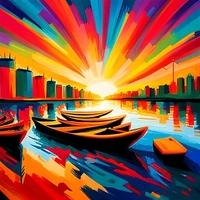
1. Dhaka International Film Festival
Celebrated in January, this festival showcases local and international films, offering a great chance to experience diverse cultures through cinema. The event is unique because it emphasizes Asian cinema, providing a platform for underrated films. The festival solves the challenge of limited exposure to different cultures and arts in one setting.
- Ticket Availability: Early booking is recommended as events can quickly sell out.
- Venue Variety: Films are screened in multiple locations across the city, offering different experiences.
- Language Support: Most films offer subtitles, and some discussions might have translations.
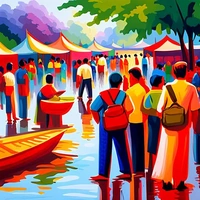
2. Ekushey Book Fair
Held in February to honor the Bengali Language Movement, this is the largest book fair in Bangladesh. Its unique focus on Bengali literature and local writers connects visitors deeply with the linguistic culture. The event addresses the challenge of protecting and promoting the Bengali language.
- Cultural Significance: Understanding local history enhances the experience.
- Language Ability: Primarily for Bengali speakers, though there are sections for foreign literature.
- Crowds: Plan visits during weekdays to avoid large crowds.
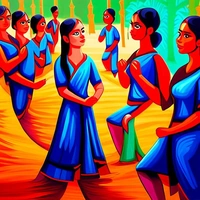
3. Pohela Boishakh
The Bengali New Year celebrated on April 14th is marked with colorful parades, music, dance, and traditional food. The festival’s unique traditional celebrations make it the most significant cultural event in Bangladesh. The event addresses the challenge of experiencing rich local traditions in one day.
- Dress Code: Wearing traditional attire is part of the celebration.
- Timing: Arrive early for the best chance to see parades.
- Security: Due to large crowds, stay aware of surroundings.
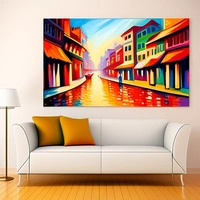
4. Dhaka Art Summit
A biennial event that happens in February, it’s a gathering for contemporary art from South Asia. It is distinct due to its large-scale installations and emphasis on cultural context, attracting artists and critics from around the world. The summit resolves the challenge of accessing contemporary local art in an international context.
- Event Schedule: Check for artist talks and workshops.
- Photography: Some exhibits may not allow photography.
- Accessibility: The venue is wheelchair accessible.
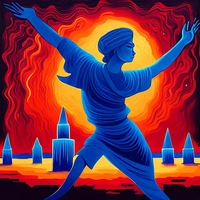
5. Dhaka Lit Fest
This annual event in November features discussions, readings, and panels with national and international writers. It's distinct because it incorporates global and regional literary discussions under one roof. The festival seeks to address the gap in accessible literary knowledge exchange.
- Attendee Tips: Sessions can be crowded; early attendance is beneficial.
- Book Sales: Opportunities for discounts and autographs.
- Language: Sessions are often available in English and Bengali.
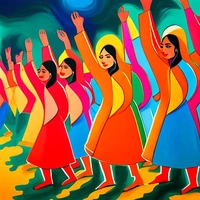
6. Shakrain Festival
Celebrated in January, it features kite flying and rooftop fireworks throughout Dhaka. Unique for its breathtaking night displays and kite battles, it brings Dhaka to life in a stunning fashion. The festival resolves the challenge of participating in an energetic local tradition.
- Viewing Spots: Finding a high rooftop provides the best views.
- Safety: Caution is advised with fireworks and kites.
- Equipment: Quality kites can be purchased locally.
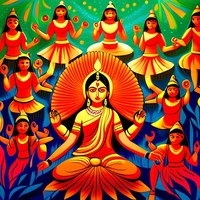
7. Durga Puja
Occurring in September/October, this Hindu festival celebrates the goddess Durga with grand processions and stunning decorations. It's distinctive due to its ornate pandals and cultural inclusivity in Dhaka. The festival secures the representation of minority traditions.
- Timing: The last four days are the most active.
- Dress Code: Traditional attire is encouraged.
- Photography: Respect privacy when taking photos.
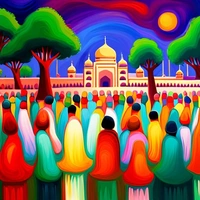
8. Eid al-Fitr
Celebrated by Muslims worldwide, Dhaka witnesses a joyful burst of festivity with prayers, family gatherings, and charity at the end of Ramadan. Its unique vibrant community spirit and large-scale mosque congregations mark the festival. The event addresses communal and spiritual enhancement.
- Dates: Based on lunar sighting, so keep track of announcements.
- Cuisine: Try traditional Eid dishes from street vendors.
- Cultural Respect: Modest clothing is advisable when visiting mosques.
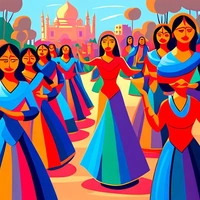
9. International Folk Fest
Taking place in November, this festival showcases traditional folk music from Bangladesh and beyond. It stands out for fostering cultural heritage through music and dance, bridging the past and present. The fest addresses the cultural preservation challenge.
- Seating: Reservation is needed for the best seats.
- Language: Performances are in various languages and dialects.
- Merchandise: Folk musical instruments are often sold.
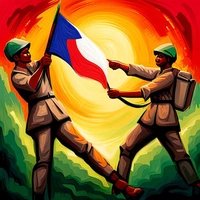
10. Victory Day
On December 16th, this event commemorates Bangladesh’s liberation, marked with parades and reenactments. Unique for its deep patriotic displays and historical significance, it unites the nation. The event tackles the theme of national unity and remembrance.
- Location: Key ceremonies happen at the National Parade Ground.
- Flag: Carrying the national flag is common.
- Noise Levels: Be prepared for fireworks and loud festivities.
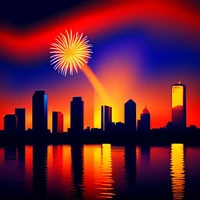
11. Independence Day
Celebrated on March 26th with flag-hoisting, marches, and cultural shows. This day stands out with its emotional tributes and patriotic zest. It encourages exploration of Bangladesh’s struggle for independence.
- Venue: Military parades and events occur in specific areas.
- Historical Sites: Enhance understanding by visiting related museums.
- Commemoration: Participation in silence at 26th March early morning.
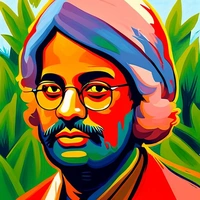
12. Rabindra Jayanti
Celebrated in May, it honors the birth anniversary of poet Rabindranath Tagore with music, dance, and readings. It stands apart for its focus on Tagore’s profound cultural impact. The event addresses the challenge of appreciating literary arts.
- Event Type: Expect music, dance, and poetry.
- Venue: Events usually take place in cultural centers.
- Language: Knowledge of Bengali enhances the experience.
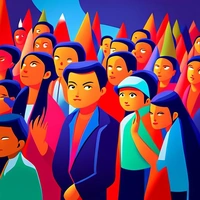
13. Dhaka World Music Festival
This event draws a diverse array of international performers to Dhaka. Its distinct global musical focus fosters cross-cultural interaction and enjoyment. The festival resolves the challenge of musical diversity in Dhaka.
- Artist Line-Up: Check prior to attending for music genre preferences.
- Tickets: Early purchase recommended.
- Facilities: Outdoor venue means preparing for weather changes.
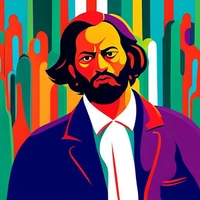
14. Lalon Smaran Utshab
Dedicated to the mystic poet Lalon Shah in Dhaka during October, this festival spotlights Baul music and philosophy. What differentiates it is its spiritual ambiance encouraging introspection. It tackles preserving and understanding mystic culture.
- Dress Code: Casual and comfortable attire is best.
- Music Timing: Evening performances are particularly enchanting.
- Community: Engage with local Baul communities.
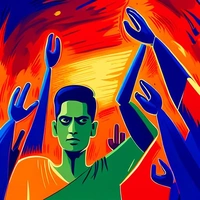
15. National Martyrs' Day
Observed on February 21st, this day honors those who died during the Bengali Language Movement. Its uniqueness lies in the midnight procession to Shaheed Minar. It addresses remembrance and language preservation.
- Timing: Attend midnight tributes for authentic experience.
- Floral Tributes: Bring flowers to show respect.
- Cultural Significance: Enhance visit with historical context of language movement.
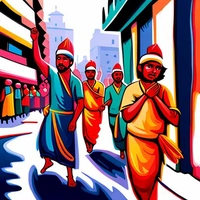
16. Pahela Falgun
This marks the advent of spring in February with fairs, music, and vibrant yellow saris. It's unique for its celebratory embrace of nature awakening. The festival encourages appreciation of Bangladesh’s natural beauty.
- Attire: Yellow-themed outfits traditional for women.
- Weather: Attend during morning for most colorful displays.
- Photography: Capture the lively and colorful atmosphere.
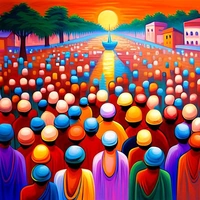
17. Ashura
Commemorating the martyrdom of Hussein ibn Ali, this significant Shia Muslim event mixes mourning with communal bonding. It’s distinct for the passionate displays of devotion in Dhaka's streets. It solves the challenge of observing minority rituals.
- Attire: Modest, respectful clothing recommended.
- Participation: Observe with sensitivity to cultural practices.
- Procession: Follow local advice for route planning due to large crowds.
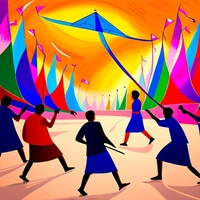
18. Kite Festival
Held in February, this festival has colorful kites filling Dhaka’s skies, bringing playful competition to participants and viewers. Its unique community engagement helps bond neighborhoods. It resolves urban social interaction challenges.
- Wind Conditions: Strong winds enhance kite-flying.
- Safety: Avoid crowded areas during intense kite battles.
- Find Materials: Kite kits are available locally for newcomers.
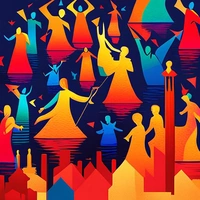
19. Dhaka Jazz & Blues Festival
A gathering that comes alive with jazz and blues rhythms from local and international artists, typically in November. It’s unique for its sophisticated music taste and intimate concert setup. The event resolves accessibility obstacles for contemporary music lovers.
- Venue Space: Limited seating; early arrival advisable.
- Atmosphere: Enjoy a relaxed and laid-back setting.
- Age Restrictions: May have age guidelines for attendees.
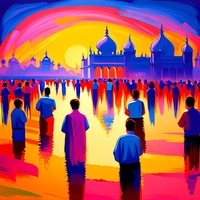
20. Baishakhi Mela
Celebrated alongside Pohela Boishakh in April, this traditional fair offers an array of local crafts, food, and performances. Its uniqueness comes from celebrating Bangladesh’s rural culture in urban spaces. It tackles exposure to regional crafts and foods in the city.
- Food: Sample traditional Bengali foods from stalls.
- Shopping: Look for unique local handicrafts.
- Crowd Size: Plan visits strategically to avoid peak times.
